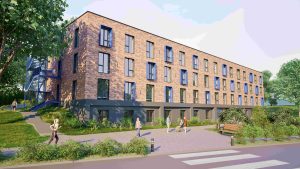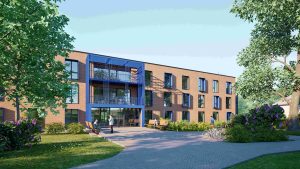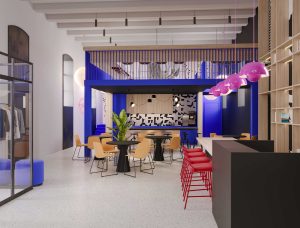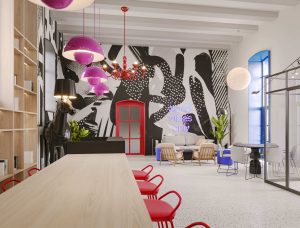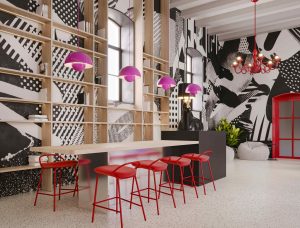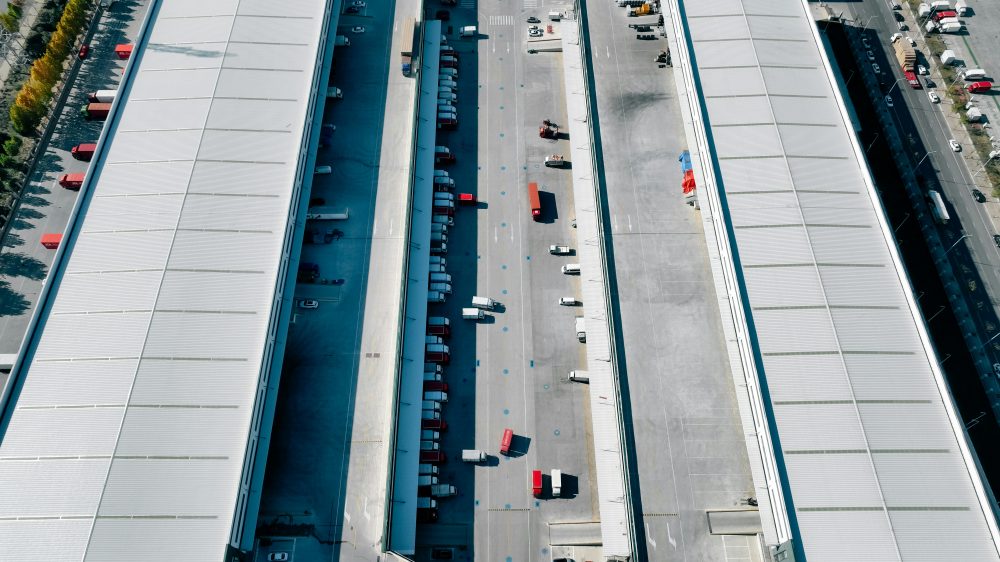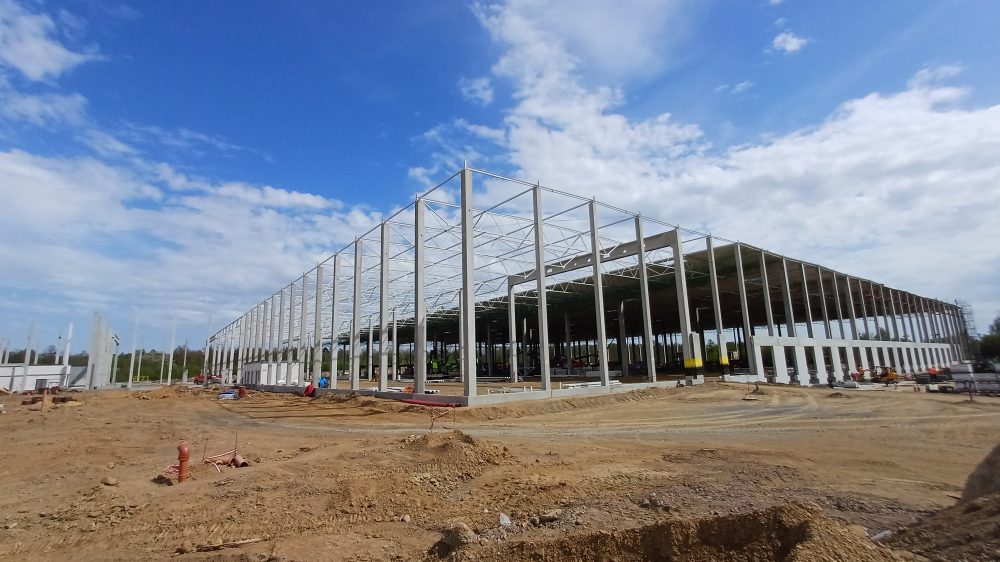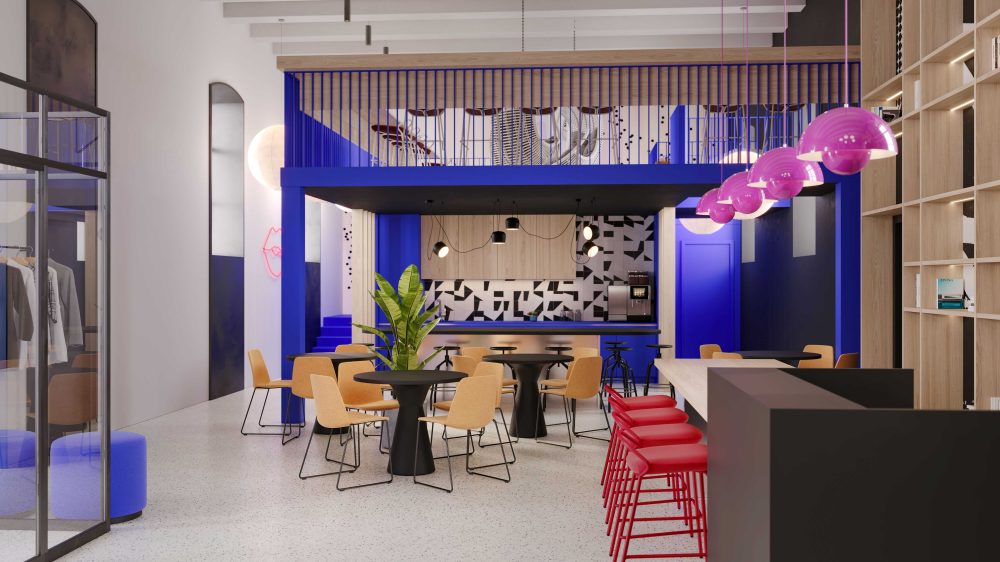
EIKA Asset Management: the face of the co-living project in Riga is taking shape
The co-living project in Riga, launched a year ago by investment management company EIKA Asset Management (EAM), is taking shape. The buildings, which previously housed a university, were purchased for EUR 3.01 million and EAM plans to invest a total of around EUR 20 million in the project, creating more than 310 high-quality apartments and communal areas that meet the needs of modern life.
The project requires considerable preparatory work before construction can begin. Tenders were organised and the selection of the design, construction manager and designers took place last year; design work started in January this year. At present, the visions and ideas for the rooms and spaces are being refined by creating an abstract interior design (mood board), which helps the designer and the client to communicate more rationally. Solution drawings have been submitted to the Riga Municipality for design conditions, and design work is ongoing.
Andrius Uždavinys, CEO of EAM:
We plan to start the actual construction of the dormitory and the administration building in September this year, and we hope to receive the building permit for the reconstruction by then. The project is divided into two phases: the first aims to have the property installed and operational by autumn 2026, and the second, depending on various circumstances beyond our control during the approval of the solutions, is planned to be completed in 2027.
Investment in a project with little competition
The buildings acquired by EAM are located in the Āgenskalns district of the Latvian capital, on the left bank of the Daugava River, opposite the Old Town of Riga. In addition to its proximity to the Daugava River and the Old Town, the district also boasts green spaces, including the reconstructed Victory (Latvian: Uzvaras) Park with its cherry blossom (sakura) garden. The park is only 100 metres away from the co-living project.
EAM is transforming a four-building complex acquired in Riga, with an area of more than 9,000 square metres, into co-living spaces that will house more than 310 high-quality apartments. For future tenants, the complex will also offer a gym, relaxation areas, quiet rooms for working, a cinema room, an event area and other communal living spaces typical of modern co-living projects. The project will also include a car park with charging points for electric cars, as well as recreational areas, gazebos, barbecues and other outdoor spaces in the courtyard and other areas.
Uždavinys:
In developing this project, we are taking into account the former function of the buildings, as until recently they were used for lectures for university students, and the acquisition of the main historic building of the university is important for the scientific and cultural community. We want to revive this complex so that active and knowledge-hungry young people can gather there again and a rich cultural and social life can take place. In addition, the co-living market in Riga is currently small and the number of students in the city is quite high.
More than 75,000 students are studying at higher education institutions in Latvia, of which about 10,000 are foreigners. Most of them study at universities and other higher education institutions in Riga. There are also several higher education institutions or their faculties in the Āgenskalns district itself, close to the co-living project under development.
The co-living project has been successful in Vilnius
Uždavinys:
The company has already gained positive experience in the development of co-living spaces. Solo Society City House Vilnius in Šv. Stepono g., a co-living project developed and managed by the EIKA Group, which was launched in the capital in autumn 2023, has gained great popularity. Last year, before September, it was 100% full with all 269 rooms occupied. The average age of the tenants was around 27 years, and 80% of them were foreigners. Some 51% of long-term tenants were students, and almost 40% were employed people. It is possible to stay here for short (3–29 days) or long (1–12 months) periods.
In recent years, the creation of co-living spaces has become increasingly popular around the world. The 2023 Residential Market Study by Savills, a real estate company operating in more than 70 countries, found that the European co-living sector is expected to attract EUR 2.6 billion of investment over the next three years. In fact, 51% of European investors plan to invest in the co-living sector. In Europe, it is the third-most invested residential asset class, on a par with retirement housing.
According to Savills, the leading trends in Europe are typically larger, square houses built-to-rent, which differ from co-living in the purpose of the communal areas, and purpose-built student accommodation, which is similar to co-living but is distinguished as a separate category in the Savills study.
